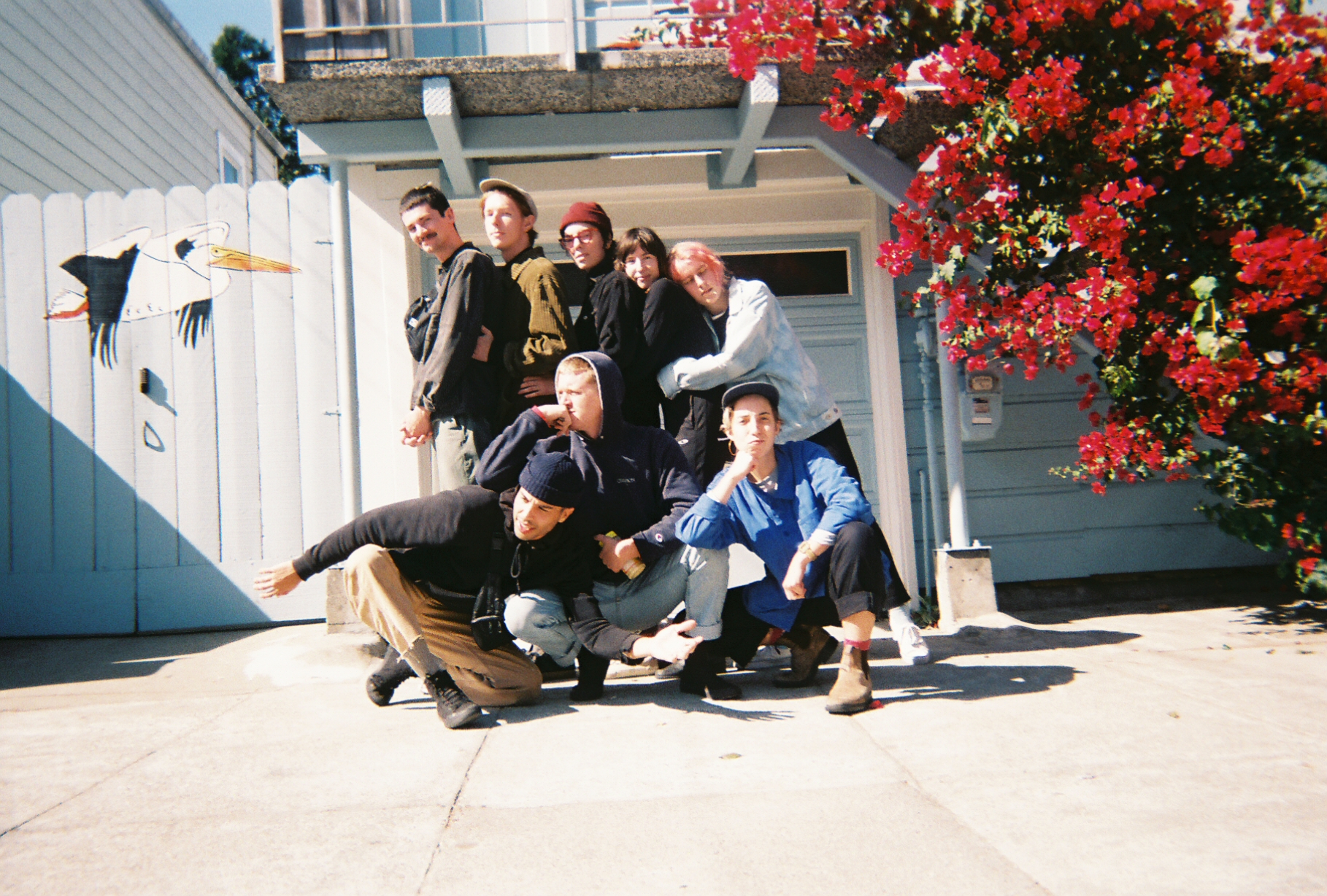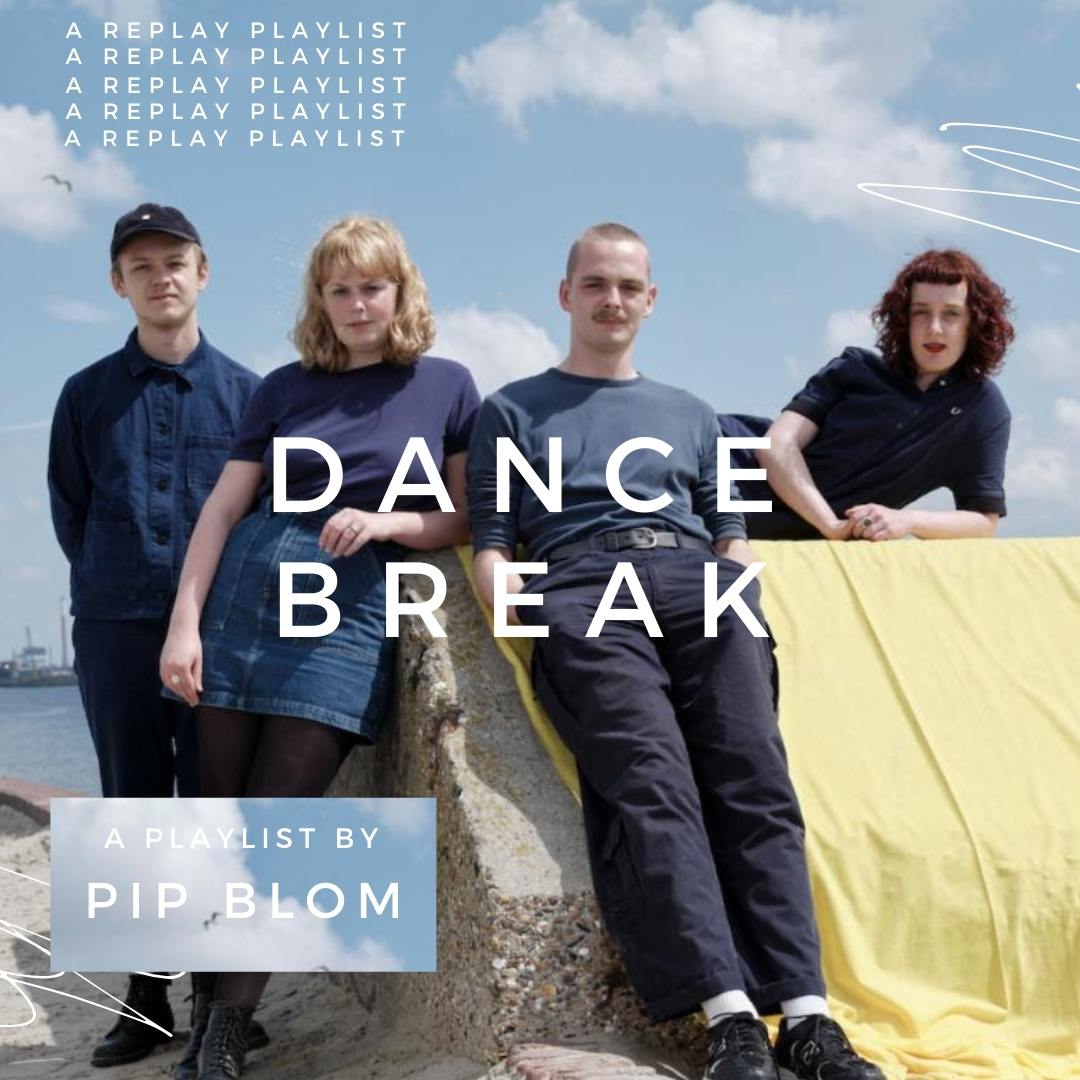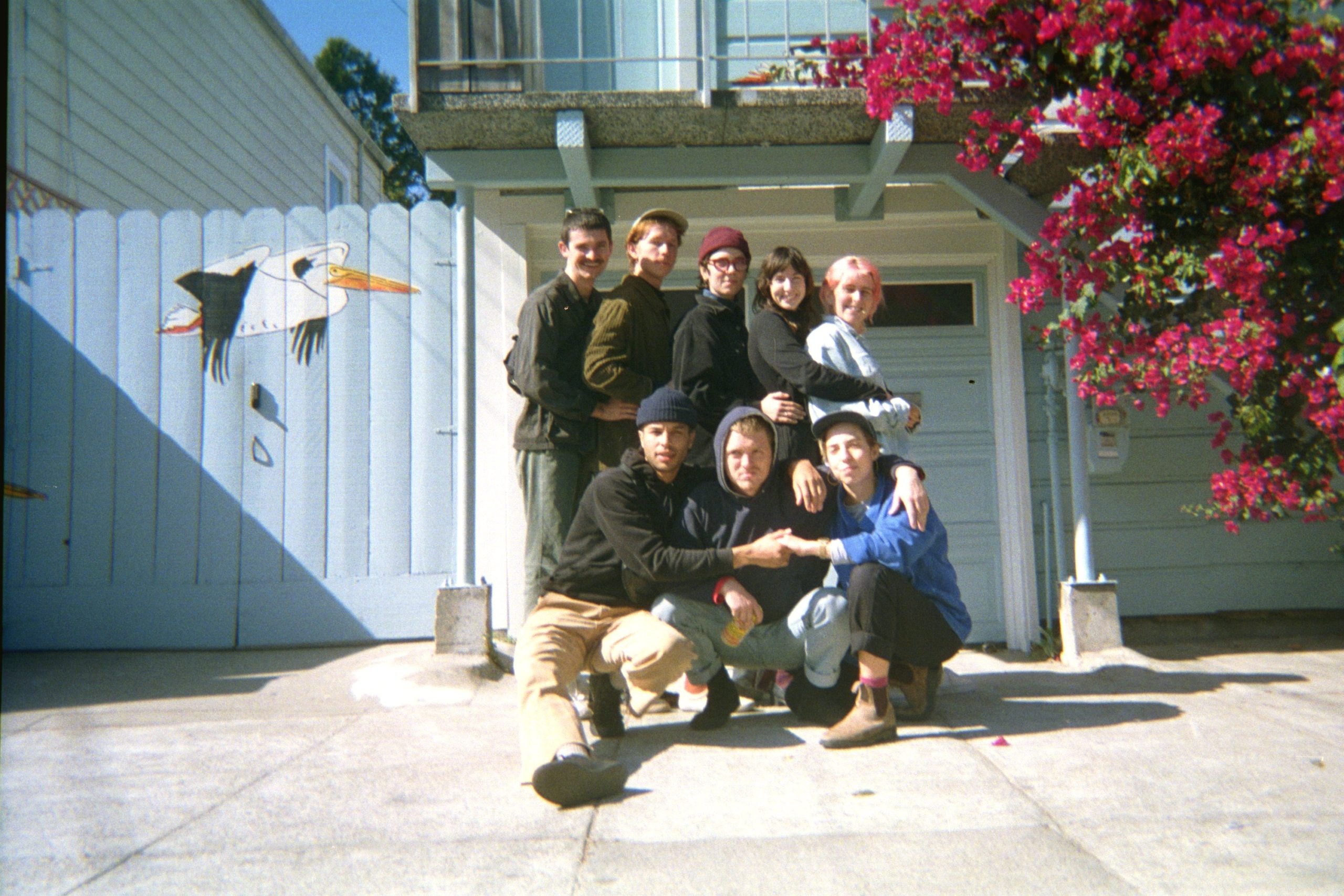Language is the only thing capable of stopping the flow of time, because it exists in time, is made of time, yet it is eternal—or can be. – Rachel Cusk, Second Place
Helena Deland’s Goodnight Summerland begins where it ends. From its initial melody echoing in the record’s final moments to the first words sung having been the last ones written, the Montreal-based artist’s sophomore album grants freedom to time and its slippery nature. It’s a license that ultimately supports Deland’s central ambition on Goodnight Summerland: to explore how we can navigate and articulate memory and its tangled relationship with connection, grief, and our identities. With its eleven acoustic tracks, a marked departure from the heavier, electronic moments of her debut, Someone New, Deland uses this next phase to invite listeners deeper into her internal process and offer an unflinching look at her own vulnerability.
Prior to the album’s conception, Deland found herself in a state of restlessness, simmering under the pandemic lockdown in Montreal. As winter retreated, she wrote two of the first songs for the record: “Nights Soft As Silk” and “Spring Bug,” the latter of which emerged with the arrival of spring and the community’s embrace of the newly warmed weather. “In these parts of the world, people just go kind of crazy […] the joy of being with friends outside was really heightened,” Deland confides at the start of our early morning conversation.
It was this buzzing, freeing energy, she recounts, that was motivating new thoughts of leaving Montreal. “At the time, I was thinking of moving; I was in the process of applying for a visa to move to England,” she shares, reflecting on the complicated yet deep decade-long history she has with the city. But Deland’s mother, Maria, passed away in the summer of 2021, not long after those first songs were written—an event that left an indelible mark on the artist. “It changes everything for someone who hasn’t encountered death [firsthand] like that,” she says.
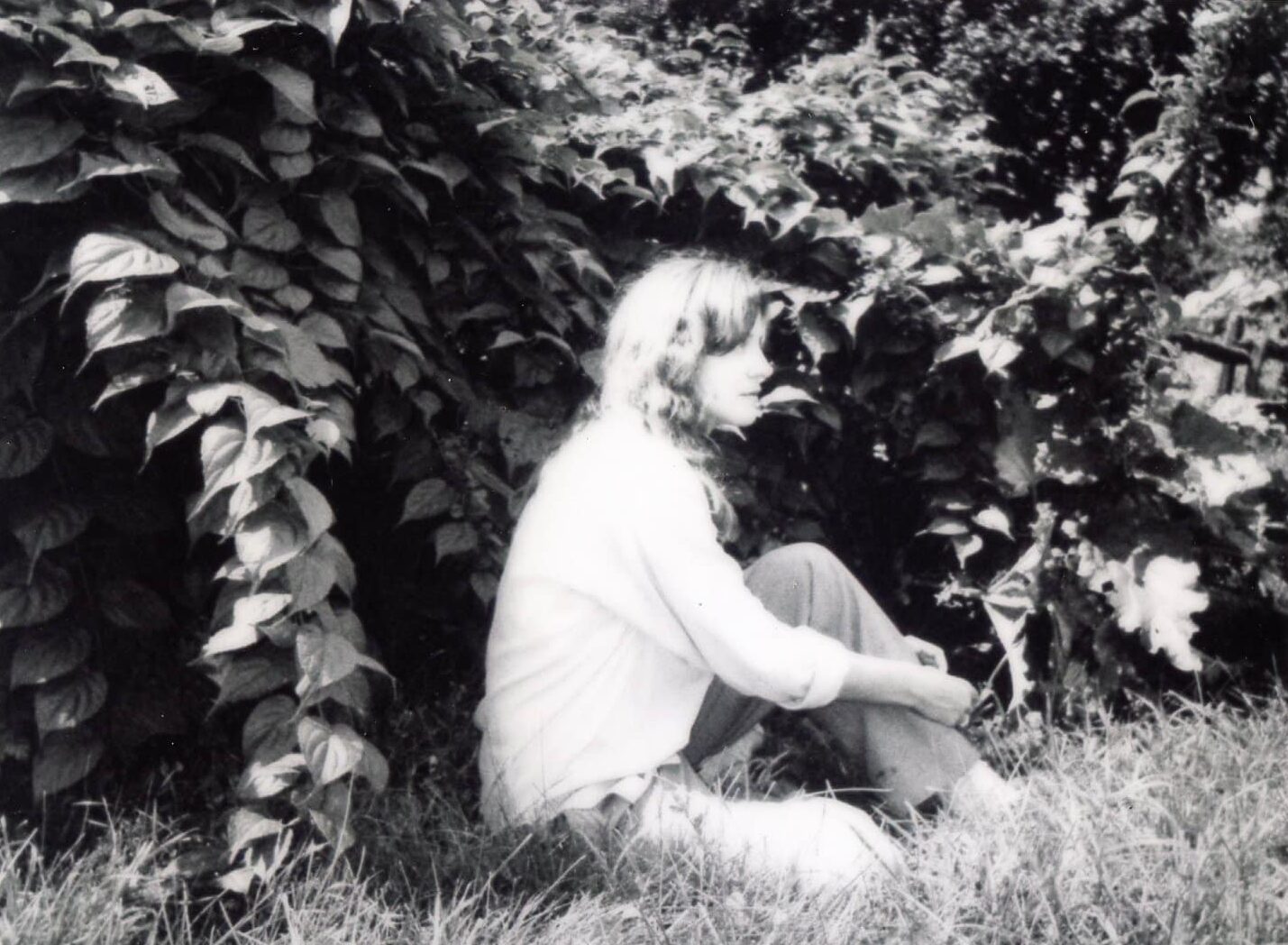
The ensuing grief was formative, molding the emotional contours of the work that would become Goodnight Summerland. Songs such as “Who I Sound Like” and the echoing first single, “Swimmer,” became Deland’s first attempts to translate her loss into words. Yet this processing continued well past those initial expressions. While recording demos in her parents’ apartment weeks after her mother’s death, her grief evolved and persisted, influencing her work until the final track for the album, “Saying Something,” was written nearly a year later. “I wrote ‘Saying Something’ last,” she recalls, “right after going on a short trip with my father and brother to spread my mom’s ashes. It was a moment to, like, let some things that I think grief taught me sink in and feel them within the family unit.”
Still, what continued to confound Deland as she worked through her grief was its effect on the boundaries of experience—how time, memory, and place can interact and often blur under the impact of loss. “I think grief makes this very obvious, but the way we experience time is […] fraught,” Deland explains. “I think it’s true [that] the knowledge of different things doesn’t happen as events happen.” She goes on to highlight how this theme weaves its way into other tracks on the album, particularly the third single, “Bright Green, Vibrant Grey.” Here, Deland uses geological time as a metaphor to underscore the duality of personal experience as both deeply impactful and ephemeral within the scope of time.
But Deland’s exploration of time and understanding is perhaps most evident in “Saying Something.” “[In that song], there’s this idea,” she says, “of […] not knowing for the longest time, and then sometimes having a feeling of certainty. It’s not more and more,” she clarifies, “it’s sometimes you don’t know, and sometimes you do. And it’s hard to say how that happens.” Her fascination with the unpredictable ebb and flow of knowledge and certainty, which can alternately sharpen and cloud understanding, shapes Goodnight Summerland’s cyclical and non-linear progression as a record.
“That is kind of the nuance between goodnight and goodbye...there is no end to that important of a relationship really...it becomes a one-sided story”
Although “Saying Something” delivers the album’s opening words, Deland chose to begin the record with a brief instrumental track, “Moon Pith.” “[That song] serves as an antechamber into the album,” Deland says. She characterizes “Moon Pith” by both its hesitation and heart. “There’s no splash; it’s pretty minimal in the arrangements […] and it’s imperfect, and there’s a lot of emotion, which is true about the rest of the album too. And I think,” she goes on, “it’s almost like asking for consent from the listener or like, making sure […] maybe this is not the right time, if you’re not into that intro, you know.”
It is a song that may initially glide by some listeners, but the subtle melody of “Moon Pith” is a vital thread for the record, reappearing to close the album on “Strawberry Moon.” In its reappearance, the melody anchors the album’s theme and circular narrative, tying it back to its title. And Deland is outspoken on this: Goodnight Summerland is not a goodbye, but rather a good night. “Death is like the biggest rupture in a relationship someone can have,” she says. “It is such a big mystery, but it’s clear to me that the person goes on and [so does] everyone they’ve touched.” She pauses momentarily and expands. “That is kind of the nuance between goodnight and goodbye […] there is no end to that important of a relationship really […] it becomes a one-sided story.” In this way, the melody shared between the songs becomes emblematic of the album’s narrative, offering not only a goodnight but also a beginning and a continuation—affording Deland and her listeners a space for reflection through each cycle.
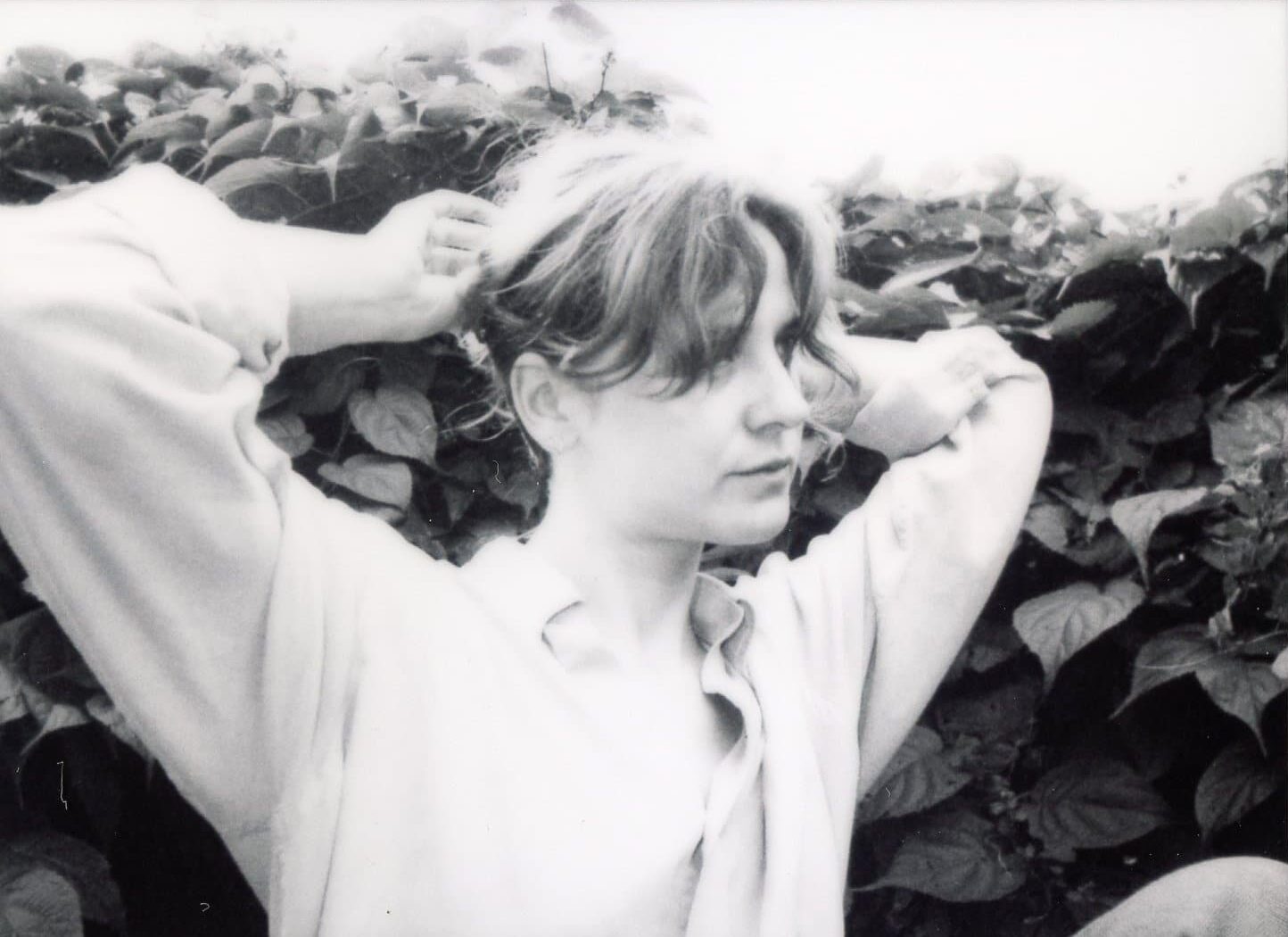
With the album now written, Deland transitioned into the next step: recording. With demos and a defined vision in hand, Deland traveled to New York’s Catskill Mountains to team up with Sam Owens and Hannah Cohen’s Flying Cloud Records and produce the final version of Goodnight Summerland. Approaching the collaboration, Deland had a growing intention to distill her work into something rawer and more communicative than her previous material. “I [felt] like maybe there was a risk of getting lost in too many arrangements, especially with a subject matter that was so difficult for me […],” she divulges. But she felt at ease entrusting Owens with the sound production of the project, explaining, “My priority is the lyrics and the storytelling and […] I felt very confident putting the soundscape in [Sam’s] hands because he’s very attentive […] but also like when something sounds good, and I want to do it 1,000 more times, he can be like, No, which is always useful.”
Deland’s openness to collaboration in the recording of Goodnight Summerland influenced not only the production of the album, but also its visual identity. Once done recording, she invited Beverly Zawitkoski, an artist and friend of her late mother whose work filled Deland’s childhood home, to create the album cover. “It felt really natural to ask [Beverly] to interpret the music into something visual,” Deland reflects. “I knew she would probably make it about my mom first, which is so sweet.” Although Deland provided some initial visual ideas, Zawitkoski, unaccustomed to working from prompts, couldn’t guarantee they would be followed but later produced eight paintings to choose from. Thrilled with the results, Deland chose one for the final album cover and used two others for the singles of “Bright Green, Vibrant Grey” and “Strawberry Moon,” incorporating Zawitkoski’s art into the album’s broader narrative. “I just trusted that asking her was the right thing to do and that whatever she created would be the right thing. And I am so thrilled with the result,” Deland beams.
The collaboration with Zawitkoski, marked by shared grief and mutual support, informed the record’s visual identity while also forging a new relationship between the two women. “I’m super excited about developing our own friendship, too,” reflects Deland. Ultimately, their partnership on the project became a medium through which they could navigate their loss and construct meaning from it. And in retrospect, their connection also emerges as an example of Deland’s exploration and processing of relationship which saturates the album.
Because on Goodnight Summerland, connection is not just a theme; it’s a practice for Deland. Her attempts at connection drive the album, exploring the richness and challenges inherent in communication: its ability to both bridge and complicate our relationships with others. “I think the album is a testament to my capacity to communicate changing,” Deland reveals. “Someone New came from a very like tortured and lonely place. And I felt very dependent on relationships […] where quality communication wasn’t possible.” By confronting these past issues with intention and embracing her vulnerability, Goodnight Summerland demonstrates Deland’s evolving closeness with others and her own voice. “Since, I have made connections that are really dear to me, and that have kind of taught me that […] deep connection is both really crucial, but also kind of rare,” confides Deland, “but I feel that learning to express myself and being welcome in doing that […] has helped me [become] closer to my voice in a very large way.”
Deland’s journey through these changes in communication becomes apparent right from the outset of Goodnight Summerland. The opening track, “Saying Something,” which could aptly serve as the album’s title, encapsulates the “space between speaking and the impossibility of expressing.” She sings:
Time acquired language,
It translated quiet things
After the fact
Into something louder
…
To time itself and what was planned ahead
To time, what I could have said
Deland regards this song as her statement for the entire album, explaining, “[That song is] what I think I have to gently like, offer myself and others—empathy and being awkward around talking about death in a culture that has very little…I think, concept of our death.” In her words, it is a song that emerges as an opening “invitation” for those facing difficulties in sharing their grief and experiences with one another.
While “Saying Something” offers an open hand to those navigating grief and connection in tandem, other tracks explore the complexities and struggles of simply reaching out. In the patient, woodwind-backed “Drawbridge,” Deland recalls the anticipation and eventual disappointment of trying to connect with someone who remains evasive, singing to their unavailability and pondering the ambiguous nature of communication: Puddles into the stream / Into the river / Didn’t puzzle me / When we said “Later” / What did you mean? This messiness of communication and connection is also explored in “Nights Soft As Silk,” which recounts a moment shared by two friends who stay up all night trying to merge their minds through language before failing and reveling in its ultimate impossibility.
“I feel that learning to express myself and being welcome in doing that [...] has helped me [become] closer to my voice in a very large way”
Through these tracks, Deland continually attempts to expose and explore the imperfections of communication, but in doing so, she discovers that despite the struggle, these shortcomings can often allow something meaningful to grow out of the vulnerability they demand. Because, after all, Goodnight Summerland is more than an album about Deland’s processing of grief; it serves as an exploration of how challenging experiences can reshape us and allow us to grow in our relationships with others and with ourselves.
The journey of self-discovery and expression finds its most vivid expression in the closing track, “Strawberry Moon.” Here, Deland confronts the weariness that often accompanies our pursuit of connection and vulnerability. “[The song is] mostly hopeful,” she says, “[but] it’s also tired, and it’s also like […] I’m kind of sick of this game of hoping to develop something meaningful. It’s just sometimes [the feeling] of […] ugh, here we go again.” But as she grapples with these emotions, Deland reflects on the perspective of a friend who is indigenous and their profound tradition and connection to the environment. She emphasizes the optimism on the track: “I just love that idea [that] in a world that’s totally broken, and […] in such a complicated time, I think I just like reminding myself that […] there’s still a lot of beauty in the world, and we’re lucky to be around right now.”
Within this context of self-discovery and expression, our conversation naturally veers towards the theme of honesty, both with ourselves and others, and how it has become an integral part of Goodnight Summerland. “[The album] is an ode to risking being honest, because it’s way more rewarding than trying to appeal,” Deland shares. She explicitly acknowledges a departure from the insecurities that influenced her earlier work, explaining, “In being more honest, I’m not hiding behind as much. I think it’s way more rewarding, actually—I feel like the return is much more personal.” As we delve into the anticipation of the album release, Deland expresses her excitement. “Obviously, I’m really looking forward to [Goodnight Summerland] coming out; it marks the final step in this journey.” But she also reveals her ongoing exploration, stating, “…there’s something about very honest communication; I’m learning that all the time. It’s probably going to be a lifelong quest, but so far, it’s pretty exciting.”
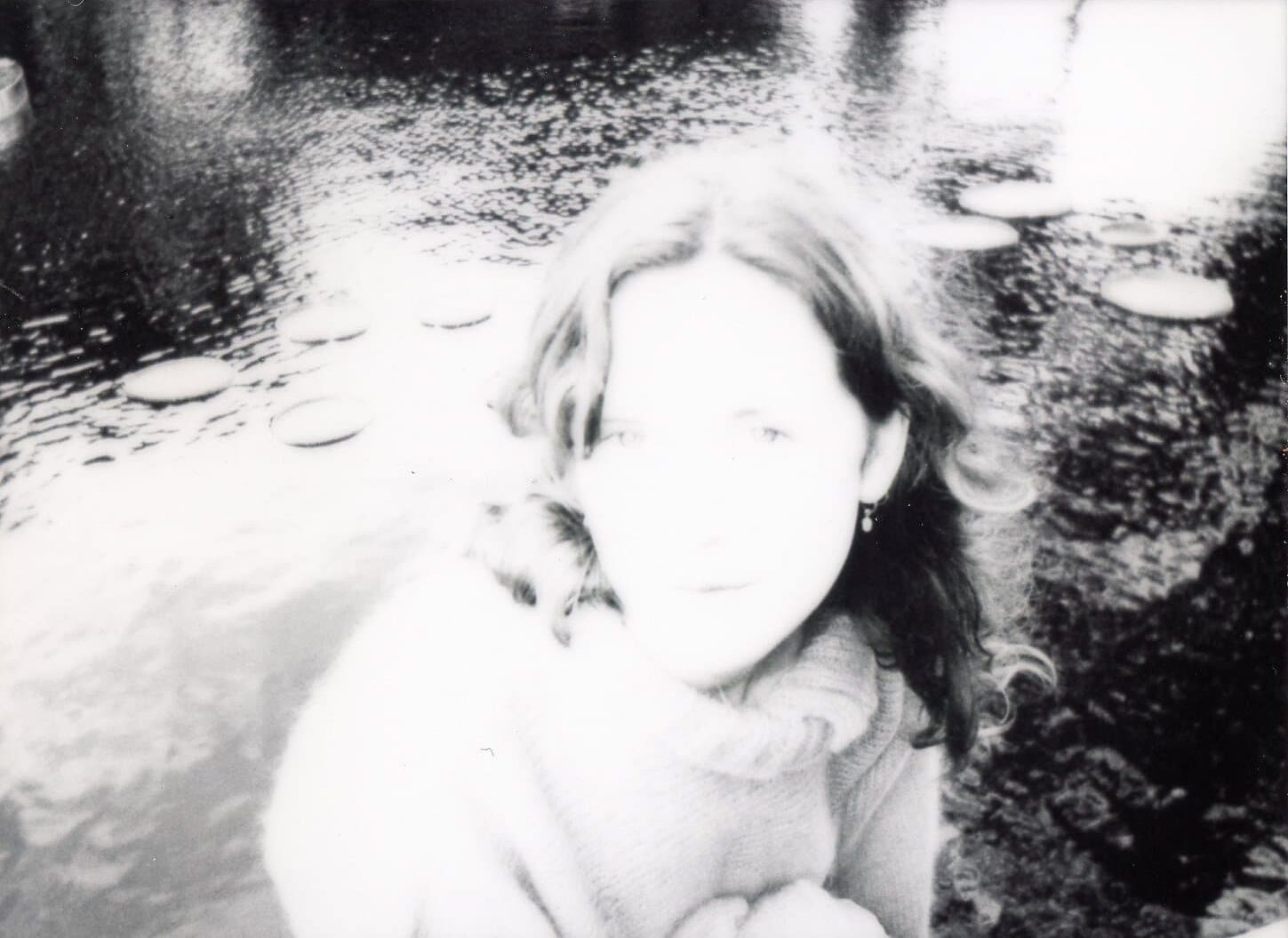
In closing, Deland circles back to her listeners with a comforting message to impart: “I think this album is a coming into my own voice. And I feel like I thought that would happen sooner for me in my life.” She adds, “I just kind of would like to let listeners know that we don’t have to know who we are. It’s a good quest to like, to try to, but it’s complicated and it takes time, and we’re bombarded with so many things.” She concludes on an optimistic note: “It can take time and it can be painful, but also [it] can be a good quest to be on, I think.”
Deland’s words capture the essence of her journey in creating Goodnight Summerland. They serve as a reminder that our path to self-discovery is always evolving, shaped by our relationships, losses, time, and experiences. And as we navigate life’s uncertainties, reaching understanding of both ourselves and others may never be an easy task—vulnerability and expression rarely are. Nevertheless, even in its difficult moments, we should embrace and revel in the progress we still make in trying.
Helena Deland’s new album ‘Goodnight Summerland’ is out now via Chivi Chivi.
